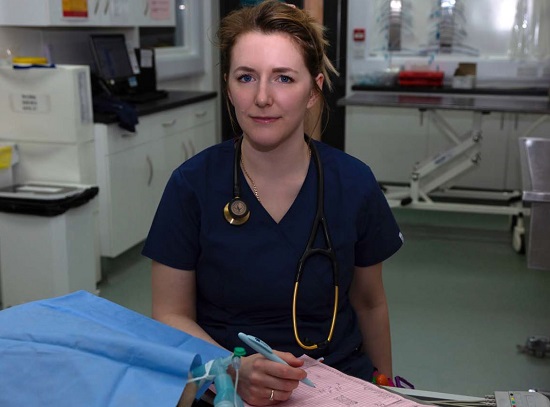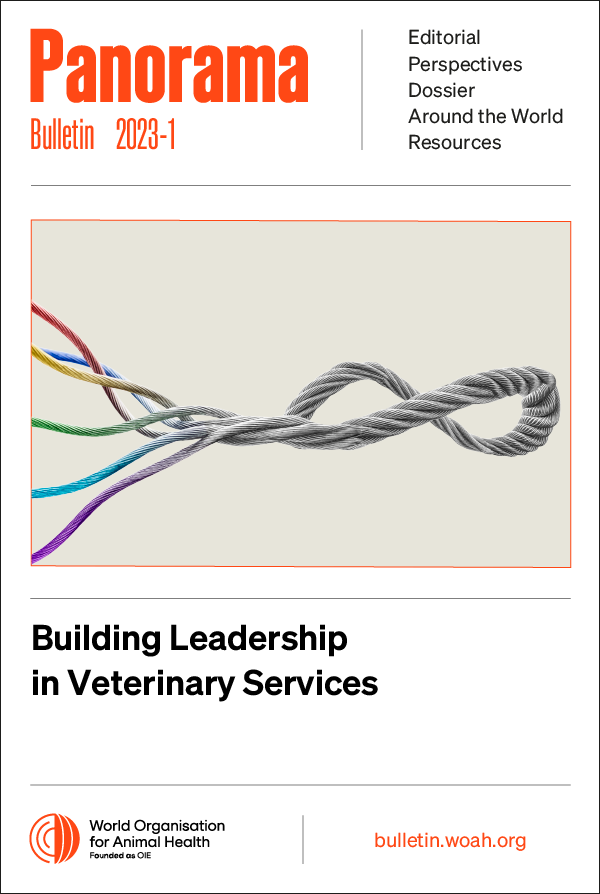Editorial Posted on 2023-12-12 13:16:40
Editorial
Strengthening Veterinary Services to face new health challenges
Keywords
This commitment has resulted in the implementation of two major programmes that aim to strengthen the capacities of Veterinary Services: firstly, the organisation of training sessions for Delegates and national Focal Points (1), and, secondly, the PVS Pathway and its multiple components. Over the years, these programmes have been enriched and modernised and have been progressively better integrated with other WOAH initiatives in a more holistic approach to animal health issues. This approach also includes extending WOAH training to a wider target audience, with the aim of contributing to the development of a sufficient veterinary workforce amongst our Members.
The global challenges of climate change, ecosystem preservation and increasingly worrying food crises must be taken into consideration, because action to improve animal health can help tackle these challenges. Conversely, the evolution of animal diseases and their emergence are impacted by these factors, which should lead us to rethink certain production methods. However, national Veterinary Services are often ill-equipped to act, as clearly is shown in the Technical Item that WOAH presented at its annual General Session in May 2019 (2).
With the COVID-19 crisis, the importance of WOAH’s message about the need for robust Veterinary Services became clear to global political decision-makers. Consequently, at the end if the G20 Heads of State and Government Summit, held in Rome on 30–31 October 2021, they reiterated their support for the strengthening of ‘global surveillance, early detection and early warning systems, under the coordinating role of the WHO, the Food and Agriculture Organization of the United Nations (FAO), the World Organisation for Animal Health (WOAH) and the United Nations Environment Programme (UNEP)…’ in order to better manage the risks posed by contact between humans, animals and the environment, particularly the risk of the emergence of zoonoses.
This ambition will only be achievable if health services, including Veterinary Services, are adequately resourced and have the capacity to act effectively: this is the challenge that we must meet, notably through the implementation of the Joint Plan of Action developed by the Quadripartite Alliance (3).
The plan to develop an international agreement on pandemic prevention, preparedness and response has put global health governance back on the agenda, and funding mechanisms are being rethought, so there is now an historic opportunity to recognise the critical role of Veterinary Services and support efforts to strengthen them.
I hope that readers of this issue of Panorama will be interested to know more about this topic and that the wealth of articles presented here will meet their expectations.
Monique Éloit, Director General
World Organisation for Animal Health (WOAH, founded as OIE)
________________________________________
(1) WOAH Delegates designate a national ‘Focal Point’ for eight themes of vital importance for Veterinary Services: animal disease notification, wildlife, veterinary products and antimicrobial resistance, animal production food safety, animal welfare, aquatic animals, communication, and veterinary laboratories.
(2) Grace D., Caminiti A., Torres G., Messori S., Bett B.K., Lee H.S., Roesel K. & Smith J. (2019). – How external factors (e.g. climate change, conflicts, socio-economics, trading patterns) will impact Veterinary Services and the adaptations required.
(3) The Quadripartite is composed of FAO, WOAH, UNEP and WHO.
https://doi.org/10.20506/bull.2023.1.3373










